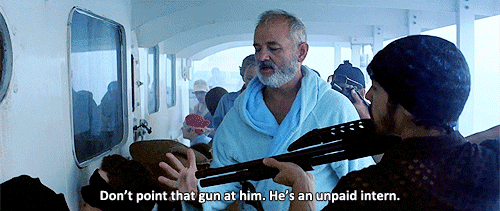Compare courses from top Australian unis, TAFEs and other training organisations.
Are You Being Conned?: the Truth About Internships
Unpaid internships are fast becoming commonplace, but should we really be so willing to offer our labour for free? Molly finds out how to identify if your internship has crossed the line from experience to exploitation.
Molly Wiltshire Bridle
Jun 16, 2025
Internships can open doors—but are they opening the right ones, or are some just disguised as free labour? With the rise of unpaid internships across creative and corporate industries in Australia, many young people are asking: what are my rights, and is this really worth it?
In today’s competitive job market, especially in sectors like media, fashion, marketing and communications, internships have become a common stepping stone. But not all placements are created equal. If you’re considering an internship, this guide will help you recognise the red flags, understand your legal rights, and make informed decisions about your career path.

Unpaid Internships: Foot in the Door or Free Labour?
A quick scan of job boards like Pedestrian Jobs reveals hundreds of unpaid internship listings—often masked as “career-launching” roles for the “right candidate.” Many promise “exposure” or “valuable experience,” but fail to mention that you’ll be working for free.
According to Labour Market Insights, youth underemployment in Australia remains a key concern post-pandemic, pushing more graduates to seek out unpaid internships in the hope of improving their employment prospects. However, too often these placements devolve into coffee runs, uncredited work, or even exploitation.
Not All Internships Are Created Equal
From answering phones to doing real revenue-generating work with zero pay, the intern experience can range from dull to downright unfair. Stories shared by young Australians include writing web content, managing social media, and completing graphic design tasks—essentially replacing a paid role without compensation.
Know Your Rights: What the Law Says
Under Australian law, unpaid internships are only lawful under specific circumstances. According to the Fair Work Ombudsman, unpaid placements must either be:
- A legitimate vocational placement through a registered training organisation or university
- A genuine volunteer position where no commercial benefit is provided to the business
If you’re performing work that benefits a business and resembles paid employment, you are likely entitled to at least the minimum wage. Employers who breach these laws can face fines of up to $93,900 per violation (as of 2025) under the Fair Work Act.
Checklist: Is Your Internship Legal and Worthwhile?
Before accepting an internship, ask yourself the following:
- Is there a written agreement outlining your responsibilities?
- Will you receive training and supervision?
- Are your tasks educational and aligned with your career goals?
- Are you replacing paid staff or doing work that directly generates revenue?
- Is the internship part of a formal education program?
If you’re unsure, contact the Fair Work Infoline on 13 13 94 for guidance.
Internships Done Right: What to Look For
When structured properly, internships can be powerful learning tools. A high-quality internship should provide you with:
- Mentorship and skill development
- Clear learning outcomes
- Constructive feedback and the opportunity to grow
- Valuable industry contacts or pathways to employment
Consider roles that are linked to formal training programs or that offer accredited certifications to enhance your employability.
When to Walk Away
If your internship becomes exploitative—no supervision, no learning, and lots of free labour—it’s okay to step back. You have every right to pursue a career without compromising your financial or emotional well-being.
Instead, consider building your skills through online courses, freelance projects, or volunteering roles that align with your interests and values. For example, platforms like GoVolunteer offer legitimate experience without risking exploitation.
Collective Change Starts with Awareness
Organisations like Interns Australia continue to advocate for fair, paid, and structured internships. They’ve previously campaigned for parliamentary inquiries and employer codes of conduct—initiatives that have improved transparency and accountability in the space.
By raising awareness, calling out unfair practices, and choosing ethical work experiences, you can help push the industry toward a more just future for early-career professionals.
Your Work Deserves Respect—and Compensation
Internships should be a stepping stone—not a stumbling block. Don’t be afraid to question unpaid opportunities that don’t meet your expectations or respect your time. Your labour matters. Your growth matters. And yes, your time is worth more than “exposure.”
About the author
Molly Wiltshire-Bridle covers career advice, job market trends, and education guidance at Career FAQs.
